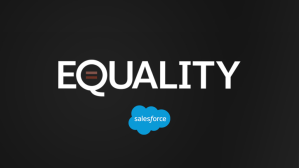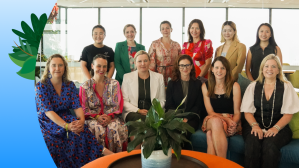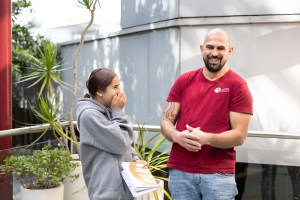May 25th marks a year since nine minutes and 29 seconds forever changed us.
The murder of George Floyd captured the attention of millions around the world and erupted in a racial reckoning long overdue.
While the anniversary brings a great deal of pain and grief — it is also a time to reflect on how we’ve changed. Many, for the first time, engaged in deep conversations around racial equality especially in the workplace, with a renewed focus around driving systemic change. As a company, last summer we established the Racial Equality and Justice (REJ) Task Force committing to tangible actions across four pillars — people, purchasing, philanthropy, and policy.
The work is ongoing. We must keep the momentum and continue driving change within ourselves, our communities, and our companies. We must keep fighting for the justice that George Floyd, Breonna Taylor, Ahmaud Arbery, and too many others never saw. And we must keep taking action toward racial equality — building a more fair, equitable, and inclusive workplace and world.
Here is an update on our progress so far:
People
We are intentional about building an equitable workplace that looks like society and where everyone can succeed.
Goal: Double U.S. representation of Black leaders and increase U.S. representation of Underrepresented Minority (URM includes Black, Latinx, Indigenous, and Multi-racial) employees and leaders by 50% by 2023.
We are also working toward a goal where 50% of our U.S. workforce will be made up of underrepresented groups (Women, Black, Latinx, Indigenous, Multiracial, LGBTQ+ employees, People with Disabilities, and Veterans) by 2023.

Every quarter, we share new findings on our equality data, progress we’ve made toward our goals, as well as new initiatives and learnings. This quarter, just short of the anniversary, we’re focusing on our workplace initiatives and data around racial equality.
A look at hiring and representation:
Over the past year, we’ve worked to re-imagine our hiring processes centered on equality and inclusion. We’ve initiated new processes, trainings, and programs which have transformed our recruiting practices and accelerated our progress. Here is a look at the data:
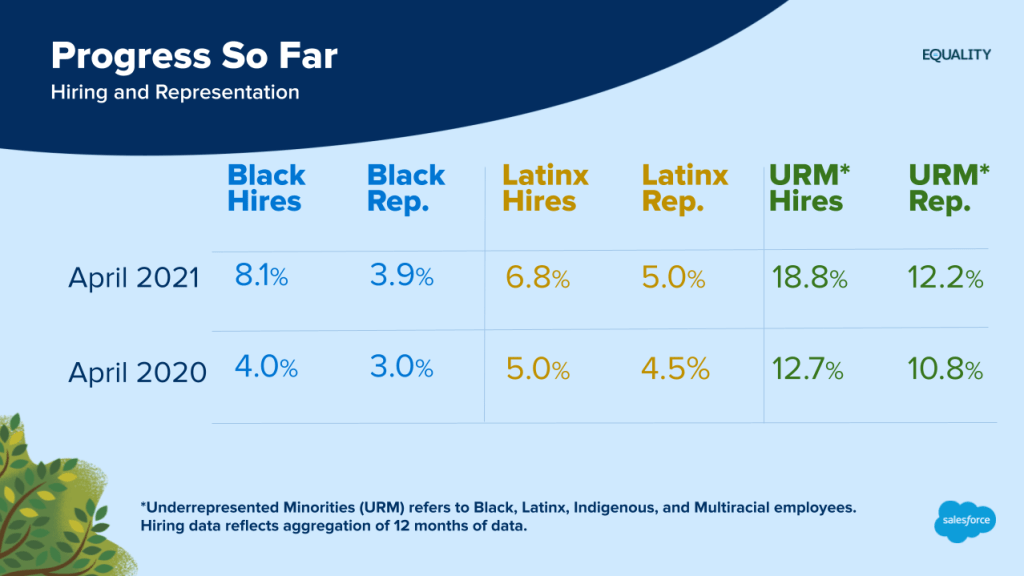
As shown in the graphic above, in the past year, we more than doubled the rate of hiring for Black talent and also increased Latinx hiring — although at a slower pace. Overall, Underrepresented Minorities (URM) hiring is up 48% and we’re seeing the impact of hiring growth on the representation numbers across our URM groups.
Our progress can be attributed to some of our new hiring initiatives, including our Diversity Recruiting team launched last year, our Interviewer Certification Program including standardized bias training, our new URM referral process and Salesforce Insiders program, connecting candidates to underrepresented employees during the recruiting process. Learn more here.
Focus on the employee experience:
While we’ve made strides in hiring, we recognize the need to focus on the experience once our talent arrives. We are working to create a culture where underrepresented talent doesn’t just exist, they thrive. Here are some of our initiatives:
- Designed a company-wide strategy focused on the Black Women experience to accelerate representation, create access, address microaggressions, and develop Black leaders.
- Building a company-wide training in partnership with a Black-owned vendor that will address microaggressions impacting underrepresented communities in our workplace. The training will enable leaders to interrupt bias and microaggressions in key talent processes and help employees recognize their role in these day to day moments.
- Scaled the Warmline, an employee advocacy program for women, Black, Indigenous, and Latinx employees. The Warmline enables employees to have confidential conversations with advocates focused on belonging, equity, and career navigation.
- Expanded our URM Leadership Development program in partnership with the Executive Leadership Council. We doubled the participation rate and integrated participation as an input into our key talent processes.
- Scaled our Equality Mentorship program, which pairs employees of color with executive mentors to help navigate their careers. The program was founded by equality group leaders in BOLDforce and Asiapacforce to create more access for their communities to senior leaders. We now have a dedicated leader on our Equality team managing the program, resources for mentees and mentors, and a continued learning path for our participants. Learn more here.
- Completed our first 6-month cohort of Career Milestones, our URM sponsorship program designed to democratize access, exposure, and visibility for Black, Latinx, and Indigenous internal talent.
- Announced our new Asian leadership development program to accelerate Asian representation in executive roles and increase access and opportunities.
- Trained nearly 10,000 employees on our Racial Equality Ally training and also conducted Inclusive Promotions Training that addressed bias and microaggressions for HR business partners and managers.
- Hosted over 40 Equality Circles, a safe space for our Equality Group leaders to address a significant societal event impacting a marginalized community. In partnership with BOLDforce and Asiapaforce – our ERG’s lead discussions on issues impacting these communities. We took time to explore concepts like the model minority myth, systemic racism, racial trauma, mental health for communities of color and active allyship .
- Launched equality resource guides for employees on how to mitigate microaggressions, inclusive language and courageous conversations, and leading with inclusive product language.
- Added Juneteenth to our list of floating holidays that employees can take off. And for those who choose to work, we ask them to limit meetings to make the space for much needed rest and to engage in continued learning. Every year, BOLDforce, our Black employee resource group, also honors this day with educational programming.
Philanthropy
We support organizations driving real, long-term change for communities of color.
Goal: $200 million and 1 million volunteer hours committed to organizations driving racial equality and justice over the next five years.
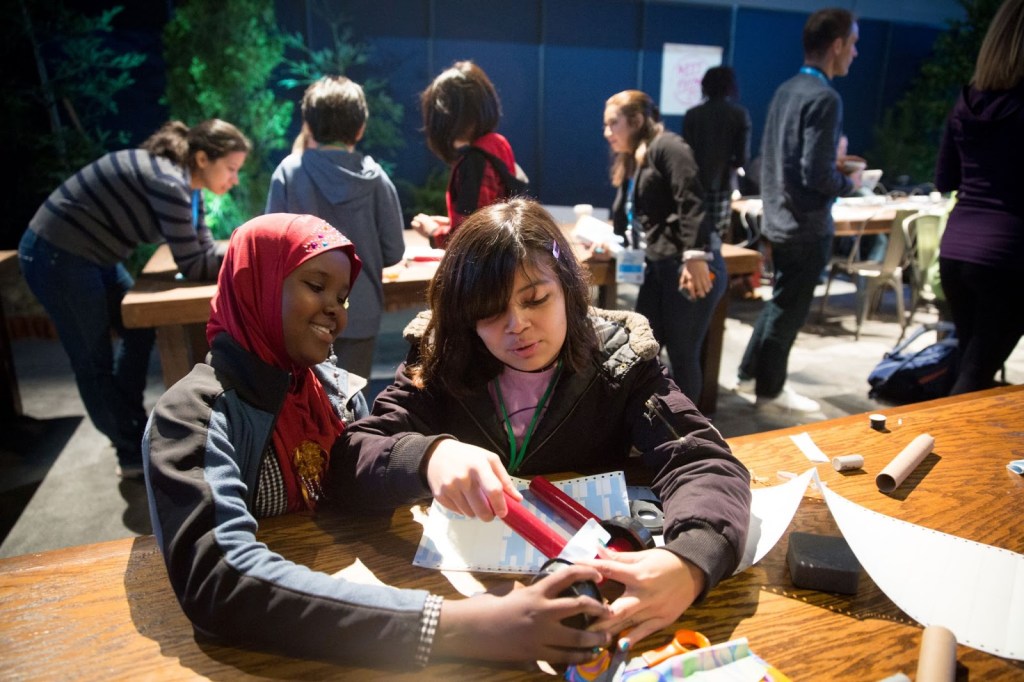
- Since June 2020, we have donated over $38 million to advance racial equality and justice. This includes work to promote economic opportunity, increase civic engagement, and promote systems change and resilience among the Black, Latinx, Indigenous, and AAPI communities. An overview of the strategy guiding this work, as well as a list of previous investments, can be found here.
- Addressed the rise of Anti-Asian racism and hate by donating $600,000 to Stop AAPI Hate and $250,000 to the Chinatown Community Development Center. Tableau Foundation also donated over $100,000 in software, services, and financial support to Stop AAPI Hate’s public information programs.
- Donated $20 million to five U.S. public school districts in 2020, empowering them to provide equitable, safe, and connected learning from anywhere.
- Announced the launch of the Catalyst Fund, a new Salesforce Foundation initiative to support smaller, younger nonprofits led by proximate, representative leaders, with an emphasis on leaders of color.
- Provided $10,000 grants to 180 San Francisco small businesses to extend support in light of COVID-19. By partnering with the San Francisco African American Chamber and others, we gave grants to a diverse group of business owners and communities, including 50% women, 22% Black, 30% Latinx, and 13% LGBTQIA business owners. Learn more here.
- Delivered over 130,000 racial equality and justice-related employee volunteer hours and launched a new volunteering partnership with the National Urban League through BOLDforce, our Black Employee Resource Group.
- Supported the launch and scaling of a pilot program to address food insecurity in partnership with Eat. Learn. Play, Oakland Unified School District, World Central Kitchen, and others, delivering nearly 500,000 pounds of farm-fresh produce from local, minority-owned farms and serving more than 32,000 low-income families, 85% of whom were mostly Black and Latinx.
- Invested $9.7 million to date through the Tableau Foundation in grants to 30 equity focused nonprofits who are using data to highlight systemic inequities and shape policy proposals for change. These grants combined software, training and financial support to these organizations, including an expanded partnership with Equal Opportunity Schools, and new partnerships with the Measures for Justice, the Southern Economic Advancement Project and Fair Count.
Purchasing
We empower minority-owned businesses and entrepreneurs of color to close the racial wealth gap.
Goal: $100 million committed to Black-owned businesses and $100 million committed to underrepresented minority founders through Salesforce Ventures over the next three years.

- Spent $135 million with minority-owned businesses to date with significant spend increases with Black-owned businesses expected in Q4 FY21 and throughout FY22.
- Ensured that all bid proposals and contract terms include terms that require our suppliers to engage URM suppliers in their procurement efforts.
- Established payment terms for 425 small businesses that reduced the processing time for payment by 30 days, positively impacting their cash flow and ability to pay expenses and develop new business.
- Supported a CRM license initiative administered by National Minority Supplier Development Council regional affiliates to offer free annual Essentials Edition subscriptions and service support to more than 100 small businesses.
- Over the last year, Salesforce Ventures has more than doubled the number of companies in its portfolio led by Black and Latinx founders including Dr. Garry Cooper of Rheaply and Olugbenga Agboola of Flutterwave.
- The Black Venture Institute, co-founded by Salesforce Ventures, alongside BLCK VC and Operator Collective, with the goal to increase the number of Black check writers in venture capital by 5x in three years graduated its second cohort of 55 operators in April 2021 and now has 105 total graduates. The next cohort will take place in Fall 2021. Learn more or express interest here.
Policy
We use our platforms to help drive systemic change at every level of society.
Goal: Advocate for the protection of voting rights, police reform, and criminal justice reform.
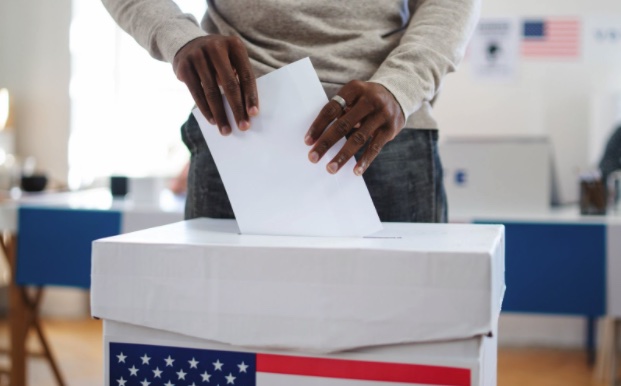
- Engaged with three states in Q1 — Georgia, Texas, and Washington — around voting rights. We opposed legislation in Georgia and Texas that would unnecessarily restrict access to voting. In Washington, we supported a bill that restores voting rights for formerly incarcerated individuals. We also joined hundreds of business leaders to show our nationwide commitment to protecting voting rights for all eligible voters in a New York Times ad.
- Supported more than 20 bills across the country — on criminal justice and police reform. We advocated for bills addressing a wide range of our priority policy recommendations, including provisions concerning data transparency, accountability, chokehold bans, ending arrests for non-violent offenses, and more
Our ongoing commitment: Building a future that works for everyone
We are committed to ongoing action in order to drive accountability and create lasting change. There is much work ahead, but we will continue to share progress and areas of opportunity to meet our commitments.
Learn more about our commitment to Equality and the Racial Equality and Justice Taskforce.
